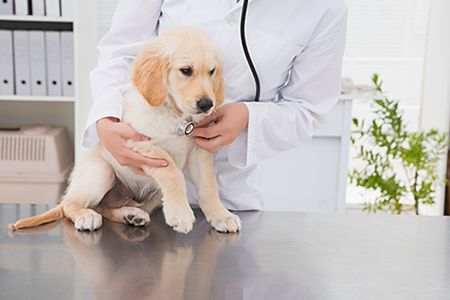Buyers remorse: Expect it three to five years after vet school
Feeling like you made a mistake becoming a veterinarian? Youre not aloneand youll get over it.

Shutterstock.comBuyer's remorse is a type of cognitive dissonance that occurs when there's a gap between what we expect to gain from a purchase and the cost we incur to obtain it. Houses and cars are generally the largest purchases people make. Therefore they tend to generate buyer's remorse most often.
An expensive graduate degree like veterinary medicine, which often costs more than our first home and rarely pays us back to the extent we expected it to, is very likely to result in some level of buyer's remorse. The problem is that most of us aren't prepared for it when it hits.
We spend a lot of time and money getting into vet school. Since not many people do, we're elated to be among the chosen few. During school we buckle down and learn all we can, not paying much attention to the money we're spending during those four years. We emerge on the other side as new doctors, excited to embark on our new career. This is a happy time. Our families are proud and our future is bright.
Six months after graduation we begin to pay back our student loans. Our first round of taxes is often a great experience because we've worked only half the year and are still entitled to some student tax credits.
The next year we learn we're making too much money to even write off our student loan interest and we're paying one-third to one-half our monthly income back to the government-and this is scheduled to go on for 10 to 25 years. For someone in their midtwenties, this is literally a lifetime.
During this time we may also find that the mentorship we'd hoped for is not available. Patients die despite our best efforts. Clients get angry and don't appreciate what we do. We still have an enormous amount to learn. For these reasons we tend to dislike our first jobs so much that we question why we chose this profession in the first place. I certainly felt this way myself, and more of my colleagues have expressed these sentiments than not.
I propose that the question “Why did I become a veterinarian?” is completely normal and we should expect it. Between years three and five after graduation we feel like we're giving too much of our income back to the government to pay for a profession we're not even sure we want-and we're stuck. It would cost us too much to go back to school and choose something else. So on we trudge.
By this time we may have bought a house (or wanted to), gotten married and had a baby or two. These life changes often aggravate our feelings of buyer's remorse. The cost of our schooling just doesn't feel like it's worth it anymore. But it's too late. It's done.
Despite all this, veterinary medicine is our passion and we really do love the science and most of the patients and clients. So most of us would probably choose to be veterinarians again if we had it to do over. But we advise others against following in our footsteps. These simultaneous realities might not add up logically-hence the cognitive dissonance-but we should talk about them and realize the conflicting feelings are normal.
Once we come to terms with (get used to) our student loan payments, become more comfortable and competent as clinicians, and begin to earn more based on our experience, the negative feelings will dissipate. Most of us will find our groove and discover that we're grateful and glad to be veterinarians.
If the potential for buyer's remorse were discussed during veterinary school, at least we wouldn't be so shocked and often debilitated by the experience. We would know that we're not alone, this is normal, and this too shall pass.
Dr. Jessica Fusch owns Key Veterinary Care in Elkton, Florida.